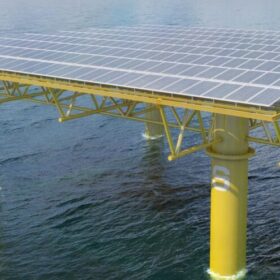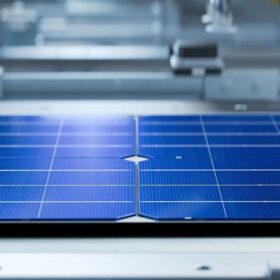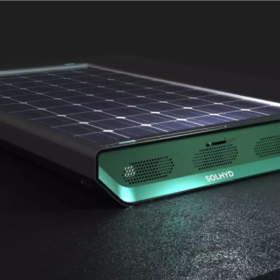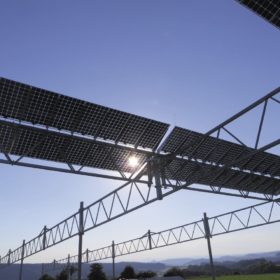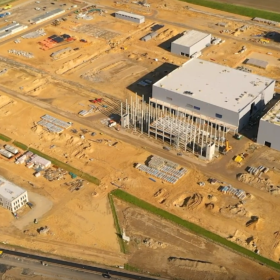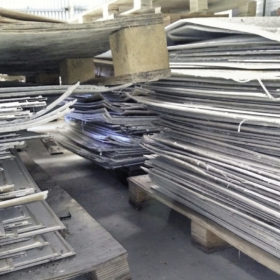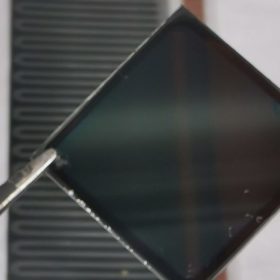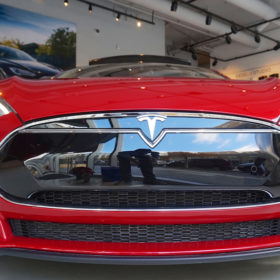Offshore floating PV demonstrator to go online in North Sea
The SeaVolt consortium says it will launch an offshore floating PV demonstrator off the Belgian port of Ostend. The main companies – Tractebel, DEME, Equans and Jan De Nul – say the anchored floating array will collect data for at least a year to scale up the tech.
Reusing silicon from end-of-life solar panels in EV batteries
Scientists in Belgium are exploring the potential of recycled silicon in solar modules at the end of their life cycle for reuse in low-cost, higher-energy-density storage technologies. They claim EV batteries using this silicon may allow faster recharging and travel longer distances on a single charge.
Hydrogen-producing rooftop solar panels nearing commercialisation
KU Leuven researchers have developed rooftop panels that capture both solar power and water from the air. Like traditional PV modules, hydrogen panels are also connected, but via gas tubes instead of electric cables. The researchers are now preparing to bring the tech to the mass market via a spinoff company.
New method to evaluate performance, LCOE of elevated agrivoltaics
Scientists in Belgium have developed a way to assess elevated agrivoltaic projects, by calculating key performance indicators such as energy yield and levelized cost of energy (LCOE). They have found that shade-tolerant crops such as potatoes could potentially be paired with around 1,290 GW of PV capacity in Europe.
Umicore to purchase 42,000 tons of Australian lithium battery material
Belgian materials company Umicore has signed a contract with Australia headquartered Vulcan Energy Resources to purchase up to 42,000 tons of lithium hydroxide over a five year period beginning in 2025. The material will be used in Umicore’s production of cathode materials for lithium-ion cell manufacturers.
Solar for trekking
Belgian start-up Sunslice has developed small, portable, high-performance solar panels that can be applied to backpacks and be used as rechargers for smartphones and watches.
Solar panel recycling: Turning ticking time bombs into opportunities
Australia has certainly demonstrated its appetite for solar power. Now, with the average lifespan of a solar panel being approximately 20 years, many installations from the early 2000’s are set to reach end-of-life. Will they end up in landfill or be recycled? The cost of recycling is higher than landfill, and the value of recovered materials is smaller than the original, so there’s limited interest in recycling. But given the presence of heavy metals, such as lead and tin, if waste is managed poorly, we’re on track for another recycling crisis. A potential time bomb could present itself as an opportunity, however, if the global EV industry showed an interest in the recovered solar products.
International consortium claims 25% efficiency for flexible CIGS solar cell
Researchers led by Belgian institute imec claim to have achieved the result with a 1cm² flexible thin-film cell intended for building-integrated PV application. The result tops the 24.6% efficiency the consortium announced in September 2018. The cell’s developers are now aiming for 30%.
New app helps charge Tesla EVs when electricity is greener and cheaper
With its app already present in Belgium and the Netherlands, start-up Jedlix is introducing smart charging in France. The solution enables Tesla drivers to optimize their charging strategy.
Imec hits 27.1% on perovskite/silicon tandem cell
Belgian research institute Imec has announced the achievement of 27.1% efficiency on a perovskite/silicon tandem cell, providing further evidence of the technology’s potential to provide a low cost efficiency boost to existing PV technology.
